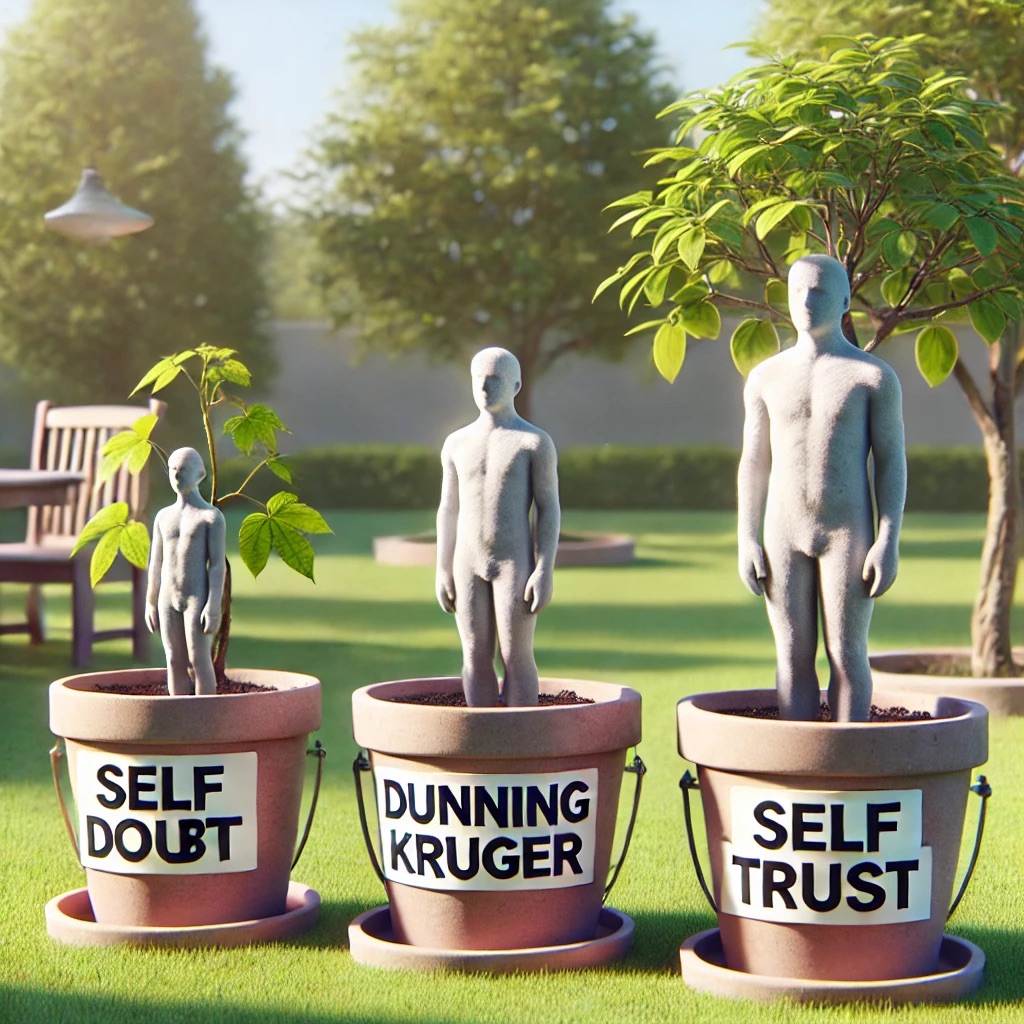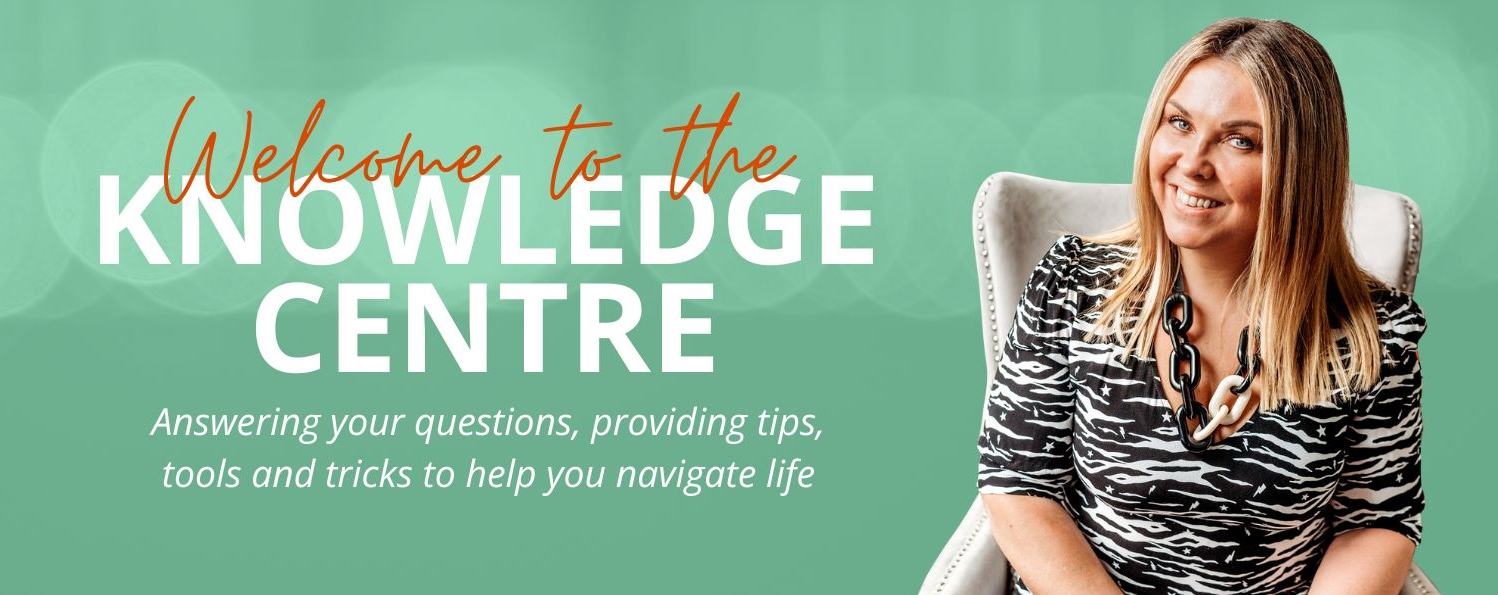
Have you ever stopped to consider how accurately you evaluate your own abilities? It’s a trickier question than you might think. As a coach, I’ve seen time and time again how our self-perception can be wildly out of sync with reality – for better or worse. Let’s dive into what I call “The Three Pots of Self-Assessment” and explore how understanding these can be a game-changer for personal and professional growth.
The Self-Assessment Conundrum
Before we get to our pots, let’s talk about why self-assessment is so dashed difficult. Psychologists have long studied this phenomenon, and the results are fascinating. A study by David Dunning and Justin Kruger in 1999 kicked off a whole field of research into how we perceive our own abilities. They found that people tend to be pretty bad at evaluating their own competence – and the least skilled were often the most overconfident.
But it’s not just about overconfidence. On the flip side, highly competent individuals often underestimate their abilities. This “impostor syndrome” has been widely documented, especially among high-achievers. A 2020 review in the Journal of General Internal Medicine found that up to 82% of people experience impostor syndrome at some point in their careers.
So, where do you fall on this spectrum? Let’s explore the three pots I’ve observed in my coaching practice.
Pot 1: The Self-Doubt Pot
Picture a beautiful, thriving plant that’s constantly wilting because it doesn’t believe it deserves water. That’s what it’s like in the Self-Doubt Pot.
Characteristics:
– Consistently underplaying capabilities and achievements
– Dismissing positive feedback or evidence of success
– Strong inner critic drowning out objective reality
I had a client, let’s call her Sarah, who was a rising star in her tech company. She’d consistently outperformed her peers, received glowing reviews, and even secured a patent. Yet, in our sessions, she’d say things like, “I just got lucky” or “Anyone could have done that.” Sound familiar?
Research backs up how common this is. A 2019 study in the Journal of Vocational Behaviour found that self-doubt was negatively correlated with job performance and satisfaction, creating a self-fulfilling prophecy of perceived inadequacy.
Question for reflection: What would it take for you to recognise and celebrate your true capabilities? How might your performance change if you did?
Pot 2: The Dunning-Kruger Pot
Now, imagine a plant that thinks it’s a mighty oak when it’s really a sapling. Welcome to the Dunning-Kruger Pot.
Characteristics:
– Overestimation of abilities without supporting evidence
– Resistance to feedback or learning opportunities
– Ego-driven decision making
I once worked with a middle manager, let’s call him Tom, who was convinced he was CEO material – despite consistently poor team performance and feedback. He’d say things like, “I’m better than all of these so-called executives combined.” The disconnect was stark.
The Dunning-Kruger effect, named after the researchers who identified it, shows that people with limited knowledge or expertise in a given domain tend to overestimate their abilities. It’s not just about confidence – it’s about the inability to recognise one’s own incompetence.
A 2019 meta-analysis in the Journal of Personality and Social Psychology confirmed the robustness of this effect across various domains. Interestingly, it also found that the effect was strongest in individuals with the lowest levels of competence.
Question for reflection: How might seeking regular, honest feedback from others challenge or validate your self-perception? Are you open to that kind of feedback?
Pot 3: The Self-Trust Pot
Finally, we have the ideal – a plant that knows its strengths, recognises its growth areas, and flourishes accordingly. This is the Self-Trust Pot.
Characteristics:
– Authentic recognition of strengths and weaknesses
– Alignment between self-perception, behaviour, and external feedback
– Confidence without arrogance
One of my favourite client success stories is Alex, a creative director who came to me feeling stuck. Through our work, Alex developed a deep sense of self-trust. They could articulate their strengths with conviction, acknowledge areas for growth without self-deprecation, and make decisions with confidence.
Research supports the power of self-trust. A 2018 study in the Journal of Positive Psychology found that self-trust was positively correlated with well-being, resilience, and goal achievement. It’s not about being perfect – it’s about having an accurate, compassionate view of oneself.
Question for reflection: In what areas of your life do you feel this genuine self-trust, and how did you cultivate it? How can you extend that feeling to other areas?
The Journey Between Pots
Now, here’s the kicker – we don’t just stay in one pot. Our self-assessment can vary depending on the context, our experiences, and our growth. I’ve certainly bounced between all three in my career.
When I launched Paseda360 less than two years ago, I was firmly planted in the Self-Doubt Pot. It was a massive risk, disrupting the status quo in my field. I had to actively manage my doubt daily, reminding myself of my experience and the value I was bringing.
Fast forward to today, and I’ve shifted into the Self-Trust Pot regarding Paseda360. The evidence is clear: our trained coaches are delivering outstanding results, our courses are selling out, and our coach club members are renewing for a second year. Most recently, when we launched our Master Diploma, all 12 spots filled quickly from our small pool of trained coaches. I’m now able to align what I see and hear with a genuine belief in myself and the value of our programme.
And the Dunning-Kruger Pot? Well, that was pretty much my home in my late 20s and early 30s. Oh gosh, it makes me cringe now. But that’s the beauty of growth – we can learn from all our experiences, even the less flattering ones.
Why We Struggle with Self-Assessment
Our thinking is easily distorted; it’s how we’re wired. Evolutionary psychologists suggest that our brains developed with some built-in biases:
- See the threat: We’re primed to notice danger, which can lead us to focus on potential failures.
- See what’s wrong: Our attention is often drawn to flaws or problems rather than strengths.
- Keep safe: We might avoid risks or challenges to protect ourselves from potential harm or failure.
- Avoid rejection: The fear of social exclusion can lead us to underplay our abilities or avoid putting ourselves forward.
These tendencies, while useful for our ancestors avoiding predators, can wreak havoc on our self-assessment in the modern world.
Question for reflection: How often do you catch yourself falling into these thinking traps? How might awareness of these tendencies change your self-assessment?
Cultivating Self-Trust
So, how do we move towards that Self-Trust Pot? Here are some strategies backed by research and my coaching experience:
- Practice self-compassion: A 2015 study in the Journal of Personality found that self-compassion was linked to more accurate self-assessment and greater personal growth initiative.
- Seek diverse feedback: Don’t rely on a single source. Gather input from peers, mentors, clients, and even subordinates to get a well-rounded view of your performance.
- Keep a ‘wins’ journal: Regularly document your successes, big and small. This creates a tangible record to counter self-doubt.
- Challenge your thoughts: When you notice self-doubt creeping in, ask yourself, “What evidence do I have for and against this belief?”
- Set realistic goals: Break larger objectives into smaller, achievable tasks. This allows for regular ‘wins’ and builds confidence over time.
- Embrace a growth mindset: View challenges as opportunities for learning rather than threats to your ability.
Remember, the goal isn’t to eliminate all self-doubt or to develop unwavering confidence. It’s about cultivating a realistic, compassionate view of yourself that allows you to recognise your true capabilities and areas for growth.
The Continuous Journey
Self-assessment isn’t a one-and-done deal. It’s a continuous process of reflection, feedback, and growth. We may find ourselves dipping into different pots depending on the situation or stage of life we’re in. The key is to develop the self-awareness to recognise where we are and the tools to navigate towards that Self-Trust Pot.
As you reflect on your own journey, remember that every experience – whether rooted in self-doubt, overconfidence, or genuine self-trust – offers valuable lessons. Each ‘pot’ has something to teach us about ourselves and our potential for growth.
Final question for reflection: What’s one step you can take today to nurture your growth in the Self-Trust pot? How might this shift in self-assessment impact your personal and professional life?
Your journey of self-assessment and growth is uniquely yours. Embrace it, learn from it, and keep nurturing that self-trust. After all, the most beautiful gardens are those tended with care, patience, and a deep understanding of each plant’s needs.

